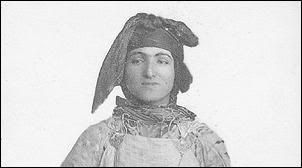Auray - Like SplendidTuesday said, it basically means 'Champion', and that's the meaning I'm using. Moreover, it's a very personal title. When talking about 'el campeador', they most likely talk about Rodrigo, not about some other champions that may be around.
Enewald - Women can peek at women too, right? Jimena is just young and curious, and wary not to break some social barriers.
Iain Wilson - Thanks

Rodrigo is still pretty young of course, and hasn't really had that much experience on the battlefield, not to mention leading men into battle.
Kazmir - That's the real question, now is it? For Castile's sake I hope so, or they'll be hopelessly outnumbered.
SplendidTuesday - Yeap, that seems to be right. His titles (though he doesn't carry 'El Cid' yet) coupled with being the marshal of Castile, indicate to the people of Spain that he's pretty much the military big shot around








